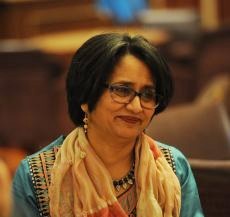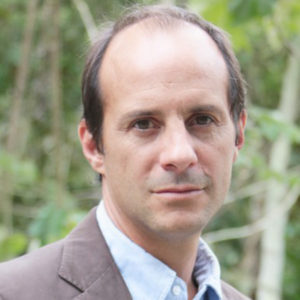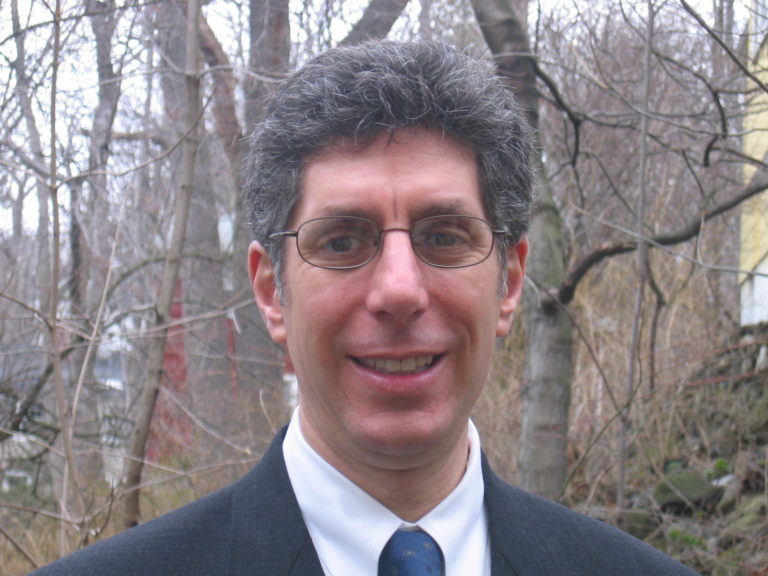The Advisory Panel

Prabha Sankaranarayan
Prabha Sankaranarayan is the President and CEO of Mediators Beyond Borders International (http://mediatorsbeyondborders.org/) an international impact organization whose mission is to build local skills for peace and promote mediation worldwide. She is committed to partnership, as evidenced by the organization’s collaboration with over 130 organizations globally. She co/leads MBBI’s recent partnership with Rotary International, a global network of 1.2 million members, with NAFCM, a North American network of over 300 mediation centers and the recently formed TRUST Network the first Early Warning and Response platform in the USA.
She is a conflict transformation practitioner who has mediated, facilitated and trained in Europe, Asia, Africa and the USA. Her public and private sector work includes conflict analysis for public/private partnerships, consultation & assessment for industrial development zones, design and implementation of trainings for multinational corporations; inter faith dialogues as well as facilitation of multi-stakeholder mediations. In her capacity as CEO of MBBI she designs conflict transformation and capacity building programs around the world, serves as a consultant for companies, policy makers, governments, universities and groups engaged in civil resistance and serves as an advisor on the role of women in peace and security.
Prabha is involved in regional, national and international civic activities focused on civil liberties, violence prevention, conflict mitigation & mediation and the recovery & rehabilitation of trauma survivors. She serves on the ASEAN Regional Forum’s (ARF) Expert and Eminent Persons (EEP) Group for the US Government. Her current Advisory & Board appointments include The Carter School for Peace and Conflict Resolution, VISIONS
Inc. (a DEI organization in USA) and Women’s International Peace Center (WIPC in Uganda).
Ramiro Fernandez
Ramiro Fernandez is Climate Change Director at Fundación Avina. He promotes partnerships between leaders from the public sector, civil society and private sector to integrate climate change as a cross cutting element of sustainable development policies. Since 2009 he has been following the multilateral negotiations under UNFCCC and he worked closely with the Minister of Environment of Peru, COP President in 2014 to enhance the role of non-state actors on the road to COP21.


Timothy Hodges
Timothy Hodges is Professor of Practice in Global Governance at McGill University’s Institute for the Study of International Development (ISID), where his work focuses on environmental global governance, and the negotiation and implementation of international sustainable development treaties by Indigenous Peoples, governments and stakeholders.
Concurrently, he is Principal at Timothy J Hodges & Associates – an international consultancy providing strategic advisory, negotiation and leadership services to governments, private non-profit organizations, industry, and Indigenous and local communities.
Professor Hodges lectures widely on international treaty law negotiation at universities across Canada, Europe, and Asia. Until recently he was Adjunct Faculty member, School of Liberal Arts and Science Trans-Disciplinary University (Bangalore, India).
He also serves as Senior Advisor, Forum for Law, Environment, Development and Governance (Chennai) and is an Expert, UNESCO Inclusive Policy Lab (Paris).
Professor Hodges is a former career Canadian diplomat, with a focus on multilateral negotiations in broad range of instruments – including United Nations (UN) General Assembly, World Trade Organization, the UN Convention on Biological Diversity (CBD), UN Framework Convention on Climate Change.
He served as Co-Chair, Intergovernmental Negotiating Committee for the United Nations treaty on Access and Benefit-sharing of Genetic Resources and Traditional Knowledge (The Nagoya Protocol)
Joseph Siegel
Joseph A. Siegel teaches Environmental Dispute Resolution at Hofstra Law School and climate change and resilience seminars at Haub School of Law at Pace University. He is an environmental conflict resolution consultant, facilitator and mediator. In addition, Joe manages the Environmental Collaboration and Conflict Resolution program in the United States Environmental Protection Agency’s New York regional office, serving as an impartial third-party on climate change and a wide variety of other environmental matters, and co-chairs the office’s Climate Change Workgroup. He is also a member of both Mediators Beyond Borders International’s (MBBI’s) Climate Change Policy Project, leading the group’s Education & Outreach Subcommittee, and the UN Multilateral Working Group.
Joe co-chaired the Alternative Dispute Resolution Committee and the Climate Change, Sustainable Development and Ecosystems Committee of the American Bar Association’s Section of Environment and Energy Resources. He was a Founding Advisor to the Kheel Center on the Resolution of Environmental Interest Disputes at Pace Law School, a member of the Advisory Group to the United Nations Environment Programme and Permanent Court of Arbitration on Environmental Dispute Resolution and Dispute Avoidance, and led workshops in Central and South America on de-escalation of environmental conflict. Joe has combined his expertise as a policy and legal expert on climate change with his more than 30 years of experience as a negotiator, facilitator, and mediator to lead many multi-stakeholder consensus-building efforts related to climate change.
